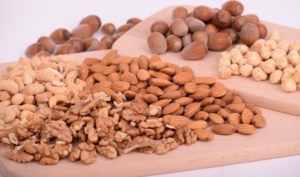Exams can be a stressful time for students. They are nervous, lack sleep, and are constantly exhausted. Their cognitive functions are constantly at work, which also puts additional pressure on their well-being. That’s why maintaining a healthy diet during this time is absolutely essential. Eating the right food can help improve concentration and memory retention, which are essential for performing well in exams. This article will explore what food groups are the best for the exam time, their examples, and why they matter.
Complex Carbohydrates
Carbs often receive a very bad reputation for completely unfair reasons. In truth, there are different groups of carbs, and not all of them are bad for you. For example, students should focus on complex carbs, as they are essential sources of glucose necessary for our brains. Hence, a diet full of whole grains, beans, and vegetables can enhance our brain function for hours.
Plus, complex carbs take longer to get processed and fill your much longer time periods while sustaining high energy levels without any spikes or falls. It is just the right food for when you lack focus and energy and feel kind of sluggish. Complex carbohydrates will provide a slow release of glucose into your bloodstream, ensuring a steady supply of energy to your brain throughout the day.
Protein
Not many people know that, but protein is actually essential for proper brain work as well as for body functions. Protein provides the brain with numerous nutrients, which regulate its normal work and enhance many brain functions. For example, proteins are a rich source of amino acids necessary for building brain connectivity networks. Thus, they are responsible for communication among brain cells, dopamine release, mood regulation, and even memory retention.
Protein is also crucial for maintaining brain plasticity, which helps it adapt and process new information and experiences. It is also essential for other cognitive functions, including balancing the nervous system and maintaining high energy levels. For example, a protein-rich dish will stabilize your blood sugar levels, preventing crashes that lead to anxiety, fatigue, mood swings, etc.
In addition, protein keeps you full and satisfied, preventing overeating and snacking on unhealthy foods. Protein can be from animal products or plant sources.
Omega-3 Fatty Acids
Omega-3 fatty acids are essential for brain health for so many reasons. First, our bodies don’t develop such acids by themselves. Yet, a large share of our brains is made of fats, primarily Omega-3 fatty acids. So, eating more products with this nutrient improves brain work, enhancing its main functions like attention and memory.
Secondly, foods rich in Omega-3 may also improve students’ sleep quality, helping them feel more relaxed and rested after sleep without reducing their daytime alertness levels.
Lastly, Omega-3 can even reduce the chances of depression. It stabilizes the mood and maintains good blood flow to the brain while minimizing the effects of stress and anxiety.
Foods rich in omega-3 fatty acids include fatty fish like salmon and tuna, as well as nuts and seeds like flaxseed and chia seeds.
Fruits and Vegetables
All students know that greens, veggies, and fruits should be a part of a balanced diet. However, it is hard to overestimate their importance in young people’s health and brain work. Fruits and vegetables are packed with essential vitamins and minerals necessary for optimal brain function. Thus, they help to boost our energy levels and support overall health and well-being.
For example, vitamins C and E are powerful antioxidants that prevent brain cell damage and reduce stress. Magnesium can boost energy levels and reduce fatigue. Vitamin C and A also boost the immune system and reduce the risk of illness and even depression. For brain work, students should especially focus on green vegetables, as they contain the most nutrients and vitamins essential for cognitive functions.
Water
Let’s not forget the importance of staying hydrated, especially during stressful times like exams. Dehydration can lead to fatigue, irritation, headaches, and reduced cognitive function. Drinking water throughout the day can help improve concentration and memory retention while reducing your stress levels. So, the next time you are looking at https://writepaperfor.me because you can’t focus on your papers, take a cup of water first. Perhaps, you’ve just missed your daily water intake.
Fast and Easy Snack Ideas
Now that we know the foods that are best for exam time let’s look at some specific examples that make healthy and easy snacks during exam revisions.
Oatmeal
Oatmeal is a perfect example of complex carbs. It is high in fiber and rich in vitamins and minerals like protein (especially if cooked with milk) and iron, both important for brain function. Thus, oatmeal can provide a sustained release of energy throughout the day and keep you full and focused.
Eggs
Eggs are an excellent source of protein, as well as such essential nutrients like choline, vitamins B2, B12, and D, which are necessary for cognitive function. Eggs can help you improve memory retention and cognitive flexibility, making it a perfect dinner/snack choice for exam time.
Blueberries
Blueberries are packed with antioxidants that can help protect the brain from stress. They are also rich in nutrients like vitamin C and vitamin K, essential for brain function. Blueberries are also essential for memory retention and cognitive function. Plus, they are simply delicious.
Dark Chocolate
Students should avoid sweets high in sugar during exam time. However, they can still enjoy dark chocolate. In fact, they should do it more often to enhance brain function and reduce stress. Not only does dark chocolate keep you alert and energized, but it also serves as an antioxidant. Hence, it helps you think faster and better without crushing your energy levels.
Nuts and Seeds
Nuts and seeds are a great source of protein and healthy fats, which can help keep you feeling full and satisfied throughout the day. Most nuts and seeds also have vitamin E, B-group vitamins, magnesium, calcium, and more. Some of the best nuts and seeds for exam time include almonds, walnuts, chia seeds, peanuts, and flaxseeds.

![What Is The Best Food To Eat During Exams? [Explained] Best Food To Eat During Exams](https://www.reviewho.com/wp-content/uploads/2023/05/Best-Food-To-Eat-During-Exams-1.jpg)

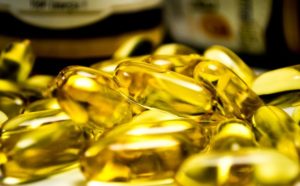

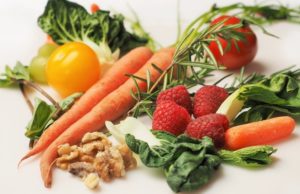
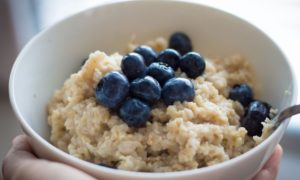
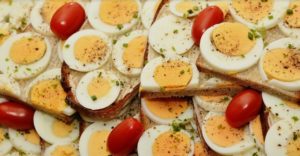
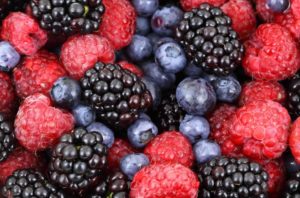
![What Is The Best Food To Eat During Exams? [Explained] Dark Chocolate](https://www.reviewho.com/wp-content/uploads/2023/05/Dark-Chocolate-300x186.jpg)
